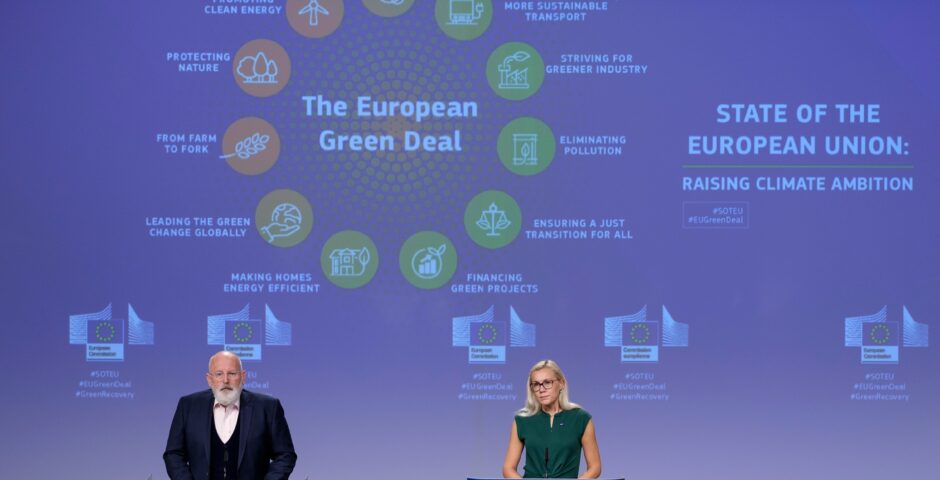It’s time to update the EU’s Regulation on Access to EU documents

Concerns that the European Union lacks transparency have increased among civil society groups, journalists, and EU citizens in recent years. Access to European Union documents is and has always been a fundamental tool for ensuring transparency and increasing the accountability of EU public officials. However, recently it has become increasingly clear that the mechanisms meant to insure the necessary access to information are sorely lacking. The European Charter of Fundamental Rights and The Treaty on the Functioning of the European Union recognize that access to documents held by EU institutions is a necessary tool for upholding democracy and ensuring public participation in decision-making. Regulation 1049/2001 is the framework which outlines the general rules and exceptions for accessing documents from the institutions in a way that allows for the “widest possible access to documents.”
This Regulation has been the cornerstone of EU transparency for over 20 years. It was drafted in 2001, before the introduction of smartphones, instant messaging, and big data. This has left the Regulation lagging behind and ill-suited to meet the transparency demands of our modern, digital times.
Calls to change and upgrade the Regulation have increased over the years and many share the view that it no longer fits today’s reality. So, what is Regulation 1049/2001 missing and how can we ensure that European Citizens get access to the information they need?
The Regulation has many issues. The main one is that it does not guarantee access to ‘information’, rather it guarantees the right of access to ‘documents’. The difference between information and documents is important as access to documents provides a much narrower scope than access to information. Union citizens can only reach information as long as it can be extracted from anything that falls under the definition of a ‘document’ under Regulation 1049/2001. Under the regulation, a”document” is defined as, “any content whatever its medium (written on paper or stored in electronic form or as a sound, visual or audiovisual recording) concerning a matter relating to the policies, activities and decisions falling within the institution’s sphere of responsibility.”
Negotiations behind closed doors?
Helen Darbishire, the executive director of the civil society group and NGO Access Info Europe argues that, because the EU does not have a Regulation on record keeping and document archiving applicable to all institutions, the Regulations promise of ensuring the “widest access possible” are just words on paper.
Each institution has its own rules and criteria for deciding which documents are archived and which are not. The German newspaper Der Spiegel published an investigative article where it found that since 2015, the European Commission has used an automatic “instant mass-deletion” program. The system deletes all documents that are not seen as containing “important information”, meaning that they are not archived and permanently deleted after 6-months.
Both the Commission and the Council have come under fire for deleting text messages. They have attempted to justify vanishing information by stating that texts and other short messages, which don’t contain substantial information and are of a “short-lived nature,” are not archived. Access cannot be granted to text messages that are deleted and not archived as they simply do not exist. The European Parliament has similar rules on document registration, where they only archive documents that are not short-lived or require action or follow-up from the Parliament.
In May 2021, journalist Alexander Fanta used Regulation 1049/2001 to request all text messages and other documents from 2021 relating to exchanges between European Commission President Ursula von der Leyen and Albert Bourla, the chief executive of Pfizer. Fanta submitted his access to information request as per Regulation 1049/2001, receiving the response from the Commission that the text messages he asked for were no longer in their possession.
When the Commission’s Secretary-General, Ilze Juhansone, commented on the matter, she stated that instant messaging is “a short-lived document which does not contain in principle important information concerning matters relating to the policies, activities, and decisions of the Commission,” and that therefore, “the Commission record-keeping policy would in principle exclude instant messaging.“
On January 26, 2022, the European Ombudsman released a recommendation stating that “The Commission should ask the President’s cabinet to search again for relevant text messages, making it clear that the search should not be limited to registered documents or documents that fulfil its recording criteria.” The Ombudsman concluded that the Commission’s inability to provide access to the Pfizer text messages amounted to “maladministration.” When public funds are being used for public procurement, the public should be able to understand how funds are distributed and used.
Similarly, in 2019, former Council President Donald Tusk’s WhatsApp communications with foreign heads of state and government leaders from 2018 were requested where the Council responded to the request stating that:
“I regret to inform you that no such SMS messages or other mobile-phone-based text communications sent out in the professional context containing substantial and not short-lived information that would be considered as documents drawn up by the European Council within the meaning of Article 3(a) of Regulation (EC) No 1049/2001 are in the possession of the GSC.”
This begs the question; how can we access information if Union institutions do not archive much of what the public is looking for?
European Ombudsman Emily O’Reilly believes that “if you don’t have a document, you cannot release it.” This can leave us with only one conclusion: Regulation 1049/2001 must be extended far beyond its current shape and be equipped with the necessary safeguards to provide the widest possible access to Union information. The EU’s transparency system needs to be much broader than its current form and include clear and specific rules on document archiving that also apply to information that is of a “short-lived nature.”
O’Reilly’s office surveyed transparency satisfaction across the EU where 77% of voters were in favor of changing the Regulation, while the other 23% were satisfied with the Regulation. The survey concluded that the current Regulation faces three main issues. The first is that the Union lacks a generalised Regulation on record keeping and the management and archiving of documents which leads to varying levels of document archiving across the institutions. Secondly, EU institutions are not sufficiently considering rulings from the European Court of Justice (ECJ) calling for limited exceptions to the Regulation. And thirdly, although the Regulation states that institutions should respond within 15 working days, there are often significant delays.
The Court calls for Greater Transparency
Over the years, the ECJ has ruled on various cases concerning Regulation 1049/2001. The Court has adopted a broad understanding of transparency seeing it as an important tool for upholding the Union’s democratic values. In its most significant transparency ruling, the Court ruled against the Council when it denied the release of documents by abusing the exceptions for access laid out in the Regulation. Generally, exceptions are only granted when balanced against specific public interest concerns. The Court found that the Council denied access to documents due to public interest concerns, nevertheless, it also stated that disclosure of the information in question would not genuinely undermine the public interest. EU institutions must use exceptions as a safeguarding tool, not as a mechanism to retain information from the public.
What is next?
While public demands to amend and make Regulation 1049/2001 fit for purpose are on the rise, it is yet to be seen if the institutions will come together to find a compromise. All previous attempts to change the Regulation have ended in legislative deadlock. Still, EU institutions cannot keep using dubious record-keeping criteria to help them avoid accountability to the Union’s citizens.
The ECJ case law concerning the strict interpretation of exceptions should also be considered by the institutions when evaluating access to information requests. Ultimately, the institutions will remain the gatekeepers of the information in their possession, so it is up to them to update the Regulation.
It is time the various branches of the EU reach a compromise to make the Regulation fit for the future and build towards the promise of a more transparent European Union. While Regulation 1049/2001 has been a beneficial tool for increasing Union transparency and accountability, 20 years after its creation it is time to modernize and expand the reach of this vital tool.
Ornella obtained a bachelors in European Studies from the University of Amsterdam in July 2021 and went on to do her internship at the NGO Access Info which aims to promote and protect the right of access to information across Europe and beyond.
Image: Shutterstock




